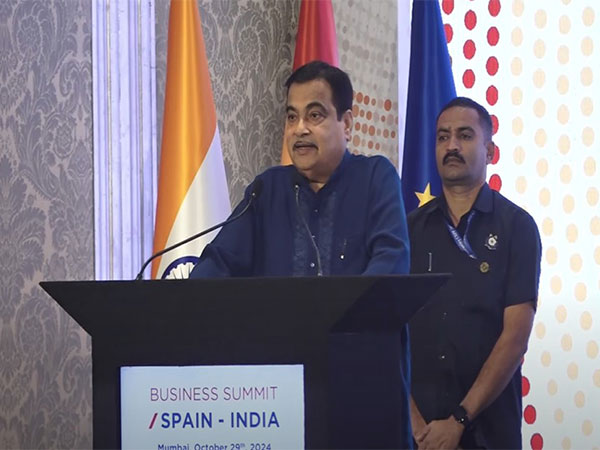Nitin Gadkari’s Vision for India: Becoming the World’s Top Auto Hub
Nitin Gadkari, India’s Union Minister for Road Transport and Highways, has expressed a bold vision: India will soon be the world’s top automotive hub. With a strategic focus on innovation, sustainable energy, and manufacturing, Gadkari aims to position India at the forefront of the global auto industry. This ambitious statement comes at a time when the automotive sector is undergoing significant transformation, driven by new technologies and an increasing demand for greener, more efficient solutions.
India’s Growing Automotive Industry
India’s automotive industry is already one of the largest in the world, with millions of vehicles produced each year. The country is home to a robust manufacturing ecosystem, catering to both domestic and international markets. However, India has long been seen as a consumer market rather than a manufacturing leader. Minister Gadkari’s vision challenges this perception by outlining plans to transform India into a global leader in automotive innovation and production.
India’s automotive market is already diverse, producing everything from small passenger cars to large commercial vehicles and motorcycles. The emergence of electric vehicles (EVs) has further fueled growth, and Gadkari’s vision includes ramping up the production and adoption of EVs to make India a hub for this rapidly growing segment.
The Role of Innovation and Sustainability
One of the key aspects of Gadkari’s vision is a focus on sustainability. He recognizes that the future of the automotive industry is shifting towards electric mobility, and India is poised to take advantage of this change. In his view, India can become a global leader not only in producing electric vehicles but also in developing the necessary infrastructure for EVs, such as charging stations and battery manufacturing.
Additionally, the development of alternative fuels like biofuels and hydrogen is a priority for Gadkari. He has emphasized that India’s large agricultural base makes it a prime candidate for the production of biofuels, which could further reduce the country’s reliance on fossil fuels. Gadkari has also highlighted the importance of green technology in automotive manufacturing, aiming to reduce carbon emissions and environmental impact across the industry.
Government Support and Policy Initiatives
For India to realize its vision as a global automotive hub, government policies will play a pivo tal role. Gadkari has been working on several initiatives to support the sector, such as providing financial incentives for automakers to invest in green technologies and offering subsidies for electric vehicle purchases. The government is also focusing on improving the country’s infrastructure to support the expansion of electric mobility, including the construction of EV charging stations and the promotion of clean energy solutions.
tal role. Gadkari has been working on several initiatives to support the sector, such as providing financial incentives for automakers to invest in green technologies and offering subsidies for electric vehicle purchases. The government is also focusing on improving the country’s infrastructure to support the expansion of electric mobility, including the construction of EV charging stations and the promotion of clean energy solutions.
In addition to EVs, India’s automotive sector is expected to grow in the production of parts and components, which will create significant job opportunities. By investing in local manufacturing and supporting the “Make in I
ndia” initiative, Gadkari envisions India becoming a global supplier of high-quality automotive components for both domestic and international markets.
Attracting Global Automakers
Part of Gadkari’s strategy involves attracting global automakers to set up manufacturing bases in India. The government has already made strides in this direction, with several international brands expanding their operations in the country. By offering a skilled workforce, cost-effective production, and access to a growing consumer market, India is becoming an increasingly attractive destination for automakers.
Furthermore, the government’s push for regulatory reforms, such as simplifying tax structures and improving the ease of doing business, is likely to make India a more attractive investment destination for both global auto companies and suppliers. This, in turn, will strengthen India’s position in the global automotive value chain.
The Road Ahead
While there are many challenges ahead, including infrastructure hurdles and the need for further policy reforms, Gadkari’s vision for India’s automotive future is ambitious yet achievable. With the right combination of innovation, sustainability, and government support, India could indeed become the world’s leading automotive hub. As the global automotive industry shifts towards greener solutions and more efficient manufacturing practices, India is well-positioned to capitalize on these trends and shape the future of transportation.
In conclusion, Nitin Gadkari’s vision is not just about building cars—it’s about revolutionizing India’s role in the global automotive landscape. If his plans come to fruition, India will not only be a hub for vehicle production but also a leader in green technologies and innovation, setting a new standard for the world to follow.
To know more- https://www.youtube.com/watch?v=IGywNN4FjoI
Also read-Goa’s Declining Tourist Numbers: How the Taxi Mafia is Driving Visitors Away

